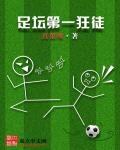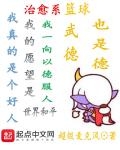Chapter 94: Mi's Flying Knife
"The strongest amateur chess players compete, and Li Xiangping takes the lead!"
"A dark horse galloping forward, the performance of our young chess player Li Xiangping in the Samsung Cup has attracted attention."
"A hero emerging from the virtual network, a brief account of the legendary online artist 'Jueyi'."
In the first game, Li Xiangping defeated Liu Changhe. This victory caused a small sensation in China. The above reports were from the mainstream domestic media. As for the Internet, especially the "Lianzhong" and "Qingfeng" forums where Li Xiangping was once active, posts about Li Xiangping or "Jueyi" were overwhelming. Many fanatical fans of "Jueyi" were as happy as if it were New Year's Day.
It is certainly not difficult to understand why such a sensation occurred. After all, in the current environment where Chinese Go is at its lowest point, this game is still quite topical.
"A 14-year-old amateur chess player faces siege from the three Korean chess kings." In fact, when such a top four lineup appeared in the Samsung Cup, no one had any expectations of Li Xiangping. Not to mention that time, even now, when Li Xiangping won the first game beautifully, no one dared to have any extravagant expectations of Li Xiangping.
It is precisely this relatively tolerant attitude towards Li Xiangping that makes every victory of Li Xiangping and every small step forward seem like an unexpected surprise and worth writing about.
In addition to this reason, the content presented in this game is of course also talked about by chess fans, especially those chess fans who truly understand chess.
The extremely exaggerated and amateurish moves at the beginning (as Li Xiangping expected, in almost all websites or TV commentaries, all the comments on the fifth move, three-three, were quite amateurish), and the final "winning the game while making trouble" way, all made the victory of this game so unique, and were enough to make the majority of spectators excited for a while.
One of the interesting phenomena here is that most chess fans or ordinary spectators are talking more about the way in which the chess player won the game, and they are fond of talking about Li Xiangping's behavior of "making trouble after winning the game".
"I was moved to tears yesterday when I saw Jueyi's performance. I felt that Chinese Go finally has hope. Why do I say that? I remember that when Japan's old charlatan Fujisawa Hideyuki played the famous game of 'Hundred Eyes Killing Game' against Kato Masao, the old charlatan once said: I feel that today's professional Go has deviated from the essence of Go. It's like dividing money. Out of 100 yuan, many professional players are satisfied with 51 yuan. They will never think about how to grab all the 100 yuan... This is actually wrong. What Jueyi's boss did yesterday truly reflects the essence of Go."
Well, the chess fan who posted this is obviously a senior one, and one who has been deeply “poisoned” by Japanese Go.
This chess fan may not know that the "essence of Go" mentioned by the old charlatan Fujisawa Hideyuki is actually the true medieval chess thought.
Ordinary chess fans are discussing this, but the experts or professional chess players are talking more about the previous fifth move, "Point 33".
After all, for the vast majority of professional chess players, this practice of "making trouble after winning the game" is certainly not worth promoting. If Li Xiangping does this again next time, everyone will welcome him a hundred times.
However, the 3-3 move in the 5th move is different. This move obviously looks very vulgar and the tactics are very amateurish, especially the "two-way crawl" in the 13th move, which seems to be obviously against the principles of chess. When learning chess, you will be scolded by the teacher for this.
But how could he still win the game by playing like this? Especially in the later stages, I didn't see Liu Changhe play any obviously bad moves, so why did the board go so badly?
This is something that deserves careful study and discussion.
On the second day after the explanation of the first game , which was the interval between the first and second games, a group of Korean chess players from the Korean Chess Institute were analyzing this move.
Today's lineup is extremely strong. Sitting in the center of the chessboard is the main player of this game, Liu Changhe, and sitting opposite him is Li Canghao, the number one chess player in the world today. Not only that, the two old kings, Lao Cao and Lao Xu, are standing on both sides, and a group of unknown professional chess players are surrounding them tightly.
It's not without reason why Korean Go is so strong these days. Not only have they produced several of the most talented people, but their strong collective research culture is also one of the reasons for their collective strength in this era.
Their analysis has been going on for some time. In the beginning, Liu Changhe was the main speaker. He roughly talked about his thoughts during the game, and then asked everyone to help analyze it. After many chess players expressed their opinions, even Lao Cao and Lao Xu talked about their views, but Liu Changhe was still not satisfied.
The reason is simple, he has not yet heard the opinion of Li Canghao, the current number one chess player.
"Canghao, what do you think?" In the end, Liu Changhe couldn't help but ask.
Li Canghao stared at the chessboard silently. After a long while, he said in a very low voice:
"I have a very strange judgment, and I don't know if it's right or not. I suddenly feel that this step 33 is very likely to be true."
ah!?
When Li Canghao said this, everyone was shocked. You know, when everyone was analyzing the game just now, they still thought that the move 33 was not good. Since this move was not good, then after the start of the game, Liu Changhe should have the advantage. Therefore, everyone's analysis just now was just to help Liu Changhe find the problem moves later, to see what went wrong that led to his loss.
But Li Canghao suddenly said that this step of three-three might be valid?
"I know my judgment may be very strange, especially this move of 'Climbing on the Second Road', which does not look like a good move, but judging from this game alone, I still have to say that this variation may work..."
Seeing that everyone was looking at him, Li Canghao's voice became even lower, but his logic was extremely clear:
"The most controversial aspect of this change is probably the 'Second Road Climb'. I think there should be no controversy about this, right? In this case, let's think from their perspective. Why did Chang He's opponent choose this 'Second Road Climb'? I think this shouldn't be hard to guess."
Everyone nodded after hearing this. If the change of point 33 is based on the traditional "two-way sticking" pattern, then the black corner can be counted as 9.5 points of real space, but what about this "two-way crawling"? The black corner can be counted as 5 points at most. Since Black would rather lose so much real space and crawl the two-way, there must be only one reason: he does not want to play "two-way sticking"!
Li Canghao's reasoning continues:
"That's right. Black would rather climb than stick to the second road. So what is his judgment? Of course, he thinks that the outer perimeter of the white pieces is not thick, and it can hardly be called a thick position. In fact, we have also seen it in the actual combat process later. I don't think Brother Changhe played particularly badly, nor did I see that his opponent played particularly well. However, the offensive and defensive battle in this area... We must admit that these white pieces did not play the role of a thick position..."
In fact, many principles in Go can be understood at a glance. After Li gave his analysis, although many people could not accept it temporarily and could not quickly adapt to it, you have to know that the person who said this was Li Canghao, Li Canghao who is unrivaled in judging the situation these days!
Based on Li Canghao's words and the actual progress of the game, many people agreed with Li's judgment.
At least Liu Changhe, 9th dan, agreed with Li's judgment.
Why do I say this? Because on the second day, in the second game, the two sides exchanged first and second moves. When many chess fans were watching the game online with great interest, something interesting happened on the chessboard as soon as the game started.
"Ha! Dot 33 again? Liu Changhe actually imitated Li Xiangping and did 33! What does he mean by this? Does he want to give Li Xiangping a taste of his own medicine, or does he want to prove that he is the best amateur chess player..."
In the game room, when Li Xiangping saw this move, he was also moved. He was certainly not feeling anything else, but was feeling that the strength of Korean Go in this era was indeed justified. From Lao Cao to the two Lis, their speed and ability to accept new things seemed to be really better than that of Chinese and Japanese players.
"Hehe, you actually want to do this with us. I just made a guess before the game, but I didn't expect it to come true. Well, Brother Ding'an, use the variation we practiced."
Old Shi seemed to be in a good mood today. He said cheerfully:
"Okay, my dear Xiang Ping, today it will be as you wish."
Not long after, the famous "Mi's Flying Dagger" appeared on the chessboard.






